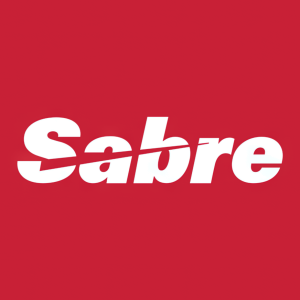STUDY: 90% of business travel managers are using AI, but opportunities in corporate travel abound
New research from Serko and Sabre details key AI challenges, successes, and priorities for the corporate travel sector including ROI, technology demands, and more
“The study’s results are clear: while AI adoption in corporate travel is high, success isn’t guaranteed,” said Darrin Grafton, CEO and co-founder of Serko. “Yes,
Key Findings: AI Momentum, But Support Gaps Remain
-
Widespread adoption: Over
90% of respondents report using AI or genAI, primarily for cost savings (71% ), enhancing the traveler experience (68% ), and improving data analysis (63% ). -
Positive ROI:
52% say AI has exceeded expectations;45% say it’s meeting them. Use cases include booking optimization (73% ), pricing and cost savings (70% ), and chatbot-based traveler support (64% ). - Transformational potential: Nearly half of travel managers believe AI will have a “significant” or “transformative” impact on their programs over the next five years.
-
Support shortcomings: While some respondents feel supported,
49% say support from travel partners is only “moderate,” and11% say they’ve received little or no help. Tech provider support shows similar results. -
Biggest roadblocks: Implementation hurdles (
46% ), lack of internal talent (19% ), and budget constraints (14% ) are slowing progress.
Tech providers must accelerate AI integration, with the customer at the center
As the study suggests, AI has moved from experimentation to expectation, but the survey indicates too many corporate travel programs are struggling to scale their efforts effectively. That’s where travel technology partners must take a more proactive role to bridge the gap between potential and performance.
“The corporate travel industry is moving quickly from exploring AI and genAI to deeply embedding it into their operations,” said Sundar Narasimhan, SVP and President, Sabre Labs. “What was once a ‘nice-to-have’ is becoming an operational necessity. Companies that fail to integrate AI-driven decision-making risk falling behind – not just in efficiency and cost savings, but in their ability to deliver the seamless, personalized experiences that travelers now expect. Our focus is on helping our customers navigate this shift with confidence, helping to ensure they have the right tools, strategies, and support to turn AI investment into meaningful traveler and business outcomes.”
Serko and Sabre agree: it’s not enough to innovate for innovation’s sake. The responsibility lies with technology providers to simplify implementation, provide smarter automation, and actively guide customers through their AI transformation journeys. That means aligning roadmaps to real-world needs, reducing integration complexity, and helping to ensure that AI delivers not only performance improvement, but traveler-centric value.
“This is a defining moment for the industry,” added Andrew Revell, Serko’s head of AI. “Our customers are asking not just for tools, but for trust, expertise, and a clear path forward. We are focused on delivering on all three.”
To download the full report, please visit: https://www.serko.com/ai-ebook-2025.
About the Serko and Sabre 2025 State of AI in Corporate Travel Report
The Serko and Sabre 2025 State of AI in Corporate Travel Report was conducted in December 2024 and polled 300 corporate travel managers in the US at organizations with over
About Serko
Whether you have 50 or 50,000 employees, Serko’s solutions simplify the process of booking and managing business travel. With GetThere, Zeno or Booking.com for Business, travelers can shop and book from millions of flight, accommodation and ground transport options with all the tools they need to start their trip online and stay online through change and disruption. Listed on the New Zealand Stock Exchange Main Board (NZX:SKO) and Australian Securities Exchange (ASX:SKO), Serko is headquartered in
About Sabre Corporation
Sabre Corporation is a leading technology company that takes on the biggest opportunities and solves the most complex challenges in travel. Sabre harnesses speed, scale, and insights to build tomorrow’s technology today – empowering airlines, hoteliers, agencies, and other partners to retail, distribute, and fulfil travel worldwide. Headquartered in
View source version on businesswire.com: https://www.businesswire.com/news/home/20250401081944/en/
Media Contact:
Nick Whitehead
CMO
nick.whitehead@serko.com
Source: Serko Ltd.







